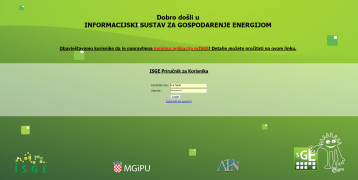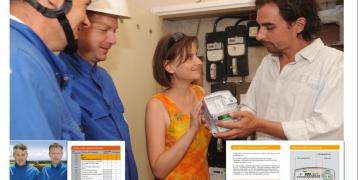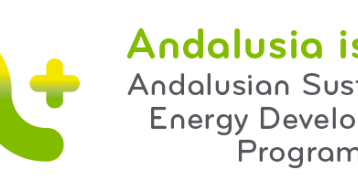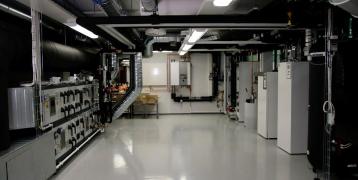Smart energy management

Smart energy management involves the efficient monitoring, controlling, and optimisation of energy systems and infrastructures through information and communication technologies and data-driven strategies. By integrating sensors, analytics, and automation, smart energy management systems collect and analyse real-time data to:
- Make informed decisions
- Optimise energy consumption
- Reduce waste
- Lower costs
As well as working on an individual building or district level, smart energy technologies are core to the creation of the smart grid.
Together, these systems can support the energy transition by facilitating better load balancing and empowering users to make informed choices while ensuring reliable and cost-effective energy supply and use.
Policymakers can also support the uptake of technologies by sharing good practices and providing advisory services targeted at end users, especially private households, and small and medium-sized enterprises. As well as providing training and support for the construction and energy industries to learn about installation and maintenance.
In this policy brief, we explore approaches to smart energy, the European framework and support structures as well as policy recommendations and good practices from Interreg Europe projects.
Download the policy brief
Download the policy brief below to explore what smart energy management could do for your region!
Featured good practices

Smart metering - Smart Energy GB

ISO 50001 Energy Management System Implementation

Energy management information system (EMIS)
FlexPower Amsterdam (Flexible Smart Charging)

Smart Synergy Project

Smart Grid Incentive Programme within the Andalusian Sustainable Energy A+ Programme

